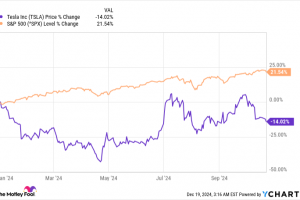
The end of the stock market’s correction may be near.
That’s because I just received an email from a prominent money manager declaring that “buy and hold is dead.” Like the first robin of spring heralding warmer weather around the corner, emails such as this one are a contrarian signal that the tide is about to turn.
That’s because the relative popularities of market timing and buying-and-holding follow a fairly predictable cycle. Buying and holding will be at its most popular at market tops and least popular at bottoms. Just the reverse will be the case for market timing.
This cycle exists because investors are like the generals always fighting the last war. During bull markets investors learn that buying and holding is the most profitable course of action, and that every dip is a buying opportunity. They continue behaving this way even after the market’s trend turns down.
By the time the bear market nears its end, however, these erstwhile buy-and-holders have become converts to market timing. And so when the trend turns back up again, they will engage in market timing—which during bull markets almost always causes their returns to be less than buying and holding. They therefore will be maximally frustrated by the time the market hits its subsequent high, at which point the cycle starts all over again.
One consequence is that headlines declaring that “market timing is dead” become more frequent near stock market tops. At bottoms, in contrast, we start seeing headlines declaring that “buy and hold is dead.” That’s why I sat up and took notice in early March when I received the email declaring buy and hold to be dead.
To be sure, this market timing popularity cycle is more qualitative than quantitative, and can’t be used to precisely pinpoint where we are in the market cycle. Last May, for example, I referred to this cycle in arguing that the “bull market is in late innings.” As we know now, of course, the top wouldn’t come until November or December (depending on which market average you use…
..






